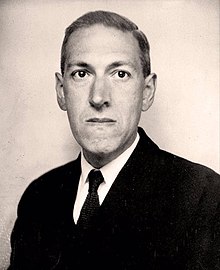- Joined
- Jan 22, 2008
- Messages
- 8,072
I thought this was an interesting article. It concerns a young writer called Robert Barlow, who became a friend of Lovecraft's, and largely wrote "The Night Ocean", a story that Lovecraft revised, and which is one of the most cryptic stories that I've read with which Lovecraft was connected.
It also raises the question of whether Lovecraft was gay. I'm suspicious: it does seem that sooner or later, anyone who didn't like a fecund life, surrounded by wife and children like a Dickens hero, is alleged to have been gay, as if this answers everything. It strikes me as a bit too easy an answer, especially when dealing with people like Lovecraft who were definitely complicated and probably very neurotic, no matter what.
Anyway, it's worth a look.
The Complicated Friendship of H. P. Lovecraft and Robert Barlow, One of His Biggest Fans
It also raises the question of whether Lovecraft was gay. I'm suspicious: it does seem that sooner or later, anyone who didn't like a fecund life, surrounded by wife and children like a Dickens hero, is alleged to have been gay, as if this answers everything. It strikes me as a bit too easy an answer, especially when dealing with people like Lovecraft who were definitely complicated and probably very neurotic, no matter what.
Anyway, it's worth a look.
The Complicated Friendship of H. P. Lovecraft and Robert Barlow, One of His Biggest Fans



